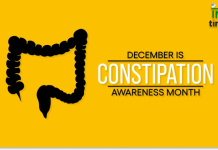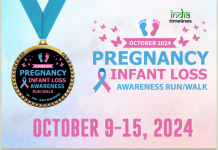
Constipation Awareness Month serves as a dedicated time to raise awareness about constipation, a condition that affects millions worldwide, often disrupting daily life and well-being. This month focuses on educating people about digestive health, causes of constipation, preventive measures, and treatments available to promote a healthier, more comfortable lifestyle.
Understanding Constipation
Constipation occurs when bowel movements are infrequent or difficult to pass. It’s characterized by fewer than three bowel movements a week and can include symptoms like hard or dry stools, abdominal pain, and a feeling of incomplete evacuation.
Why Constipation Awareness Month Matters
Many individuals experience constipation occasionally, but chronic constipation can impact overall health and quality of life. This awareness month emphasizes that addressing digestive health and identifying chronic constipation early can help prevent more serious conditions.
Causes of Constipation
- Dietary Factors: Low fiber intake is a major cause of constipation.
- Dehydration: Insufficient water intake can lead to harder stools.
- Sedentary Lifestyle: Physical inactivity often slows digestion.
- Medications: Certain medications, like opioids and antacids, may cause constipation.
- Health Conditions: Conditions like IBS, diabetes, and thyroid disorders can contribute to constipation.
Symptoms to Watch For
Common symptoms include:
- Infrequent bowel movements
- Hard or lumpy stools
- Straining during bowel movements
- Abdominal bloating or discomfort
If these symptoms persist, consulting a healthcare provider is recommended.
Preventing Constipation
- Increase Fiber Intake: Include high-fiber foods like fruits, vegetables, and whole grains.
- Stay Hydrated: Drinking plenty of water helps keep stools soft.
- Exercise Regularly: Physical activity supports healthy digestion.
- Avoid Processed Foods: These are often low in fiber and can slow digestion.
- Establish a Routine: Regular bathroom habits can support regularity.
Effective Treatments for Constipation
- Dietary Adjustments: A balanced, fiber-rich diet is key.
- Hydration: Aim for 8-10 glasses of water daily.
- Over-the-Counter Remedies: Laxatives can be effective but should be used sparingly.
- Prescription Medications: In chronic cases, a doctor may prescribe medications to help stimulate bowel movements.
- Lifestyle Changes: Small adjustments, like morning exercises or regular toilet routines, can significantly improve digestive health.
When to See a Doctor
If constipation is accompanied by severe pain, blood in stools, unexplained weight loss, or it persists despite dietary and lifestyle changes, seeking medical advice is crucial.
Conclusion
Constipation Awareness Month reminds us that maintaining digestive health is essential for overall wellness. By understanding the causes, prevention, and treatment options, we can take proactive steps toward better digestive health and well-being.
FAQs
- What is considered chronic constipation?
- Chronic constipation is when symptoms persist for three months or longer, often despite dietary and lifestyle changes.
- Can stress cause constipation?
- Yes, stress can affect gut function and contribute to digestive issues, including constipation.
- What foods can help prevent constipation?
- Foods high in fiber, such as leafy greens, berries, beans, and whole grains, are beneficial.
- Are there any natural remedies for constipation?
- Yes, drinking warm water with lemon, taking probiotics, and eating fibrous foods can help relieve constipation.
- Can exercise relieve constipation?
- Physical activity encourages bowel movement and helps maintain a healthy digestive system.



































